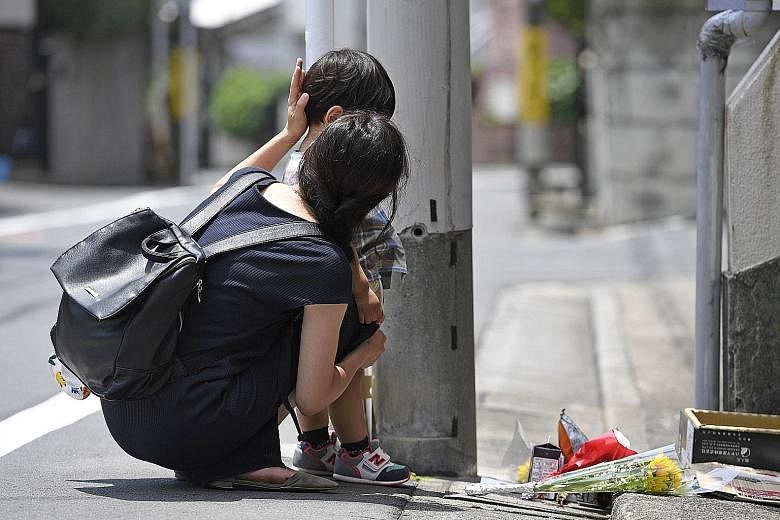TOKYO • Japan is taking emergency steps to boost the number of child welfare workers by 60 per cent within five years, spurred by the death of a girl whose handwritten notes seeking forgiveness from her abusive parents have shaken the nation.
The death in March of five-year-old Yua Funato was "soul-crushing", Prime Minister Shinzo Abe has said, in a case that exposes the shortcomings in the country's child welfare services long targeted by critics.
"Mama, I will make myself do much, much better tomorrow than I did today, without being told by Papa and Mama, so please forgive me, please, I beg you, forgive me," Yua pleaded in a notebook used for writing drills forced on her by her stepfather, who also kicked and beat her.
She weighed 12kg, about as much as an average two-year-old, at the time of her death, reports said. Yua's parents have been charged over the death, which police said was due to pneumonia-induced blood poisoning caused by malnutrition.
Announcing the emergency measures yesterday, Japan said it would also order the local authorities nationwide to confirm the safety of all pre-schoolers, relying on the help of law enforcement officials, if necessary.
"The government will work as one to create a society that protects the lives of children," said government spokesman Yoshihide Suga.
-
2,000
Number of child welfare workers to be added to the current figure of about 3,250, which has not kept pace with a doubling in child abuse reports over the five years to March last year to reach 122,578 reports.
Three weeks before Yua died, her mother had refused to let welfare workers see her at the family's apartment in Tokyo, the head of the local authority said.
He added the workers did not insist on seeing Yua because the family was no longer under official supervision, and they wanted to build an amicable relationship with the family, which had recently moved from the western prefecture of Kagawa.
Despite rights enshrined in child welfare law, children in Japan have no independent advocate or representation, unlike other developed countries such as Britain and the United States, leaving their well-being in the hands of welfare workers.
That could be dangerous, experts say, since the workers are public servants often rotated out every several years, many with no social welfare experience or skill in proper assessments.
"In practice, the way the local authorities operate is all over the place," said former welfare minister Yasuhisa Shiozaki.
About 2,000 child welfare workers are to be added to the current figure of about 3,250, which has not kept pace with a doubling in child abuse reports over the five years to March last year to reach 122,578 reports.
When her family lived in Kagawa prefecture, Yua was taken into protection twice in quick succession from late 2016 to mid-2017, after showing signs of physical abuse.
Last July, the authorities released her under supervision, including regular observation by her doctor who, in each of the following two months, alerted welfare workers to renewed signs of physical abuse.
Yua had also said she did not want to go home.
The head of the Kagawa local authority said the idea of removing Yua more permanently from her parents was dropped after they refused, and officials assessed her injuries as insufficient to convince a family court to override their wishes.
REUTERS

